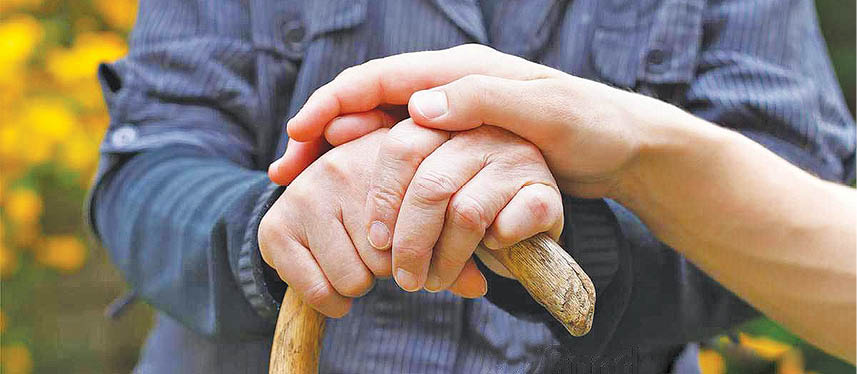Our community is blessed with a large number of seniors, but with age, come ailments, as physical strength and the immune system start taking a bow. A lot of times, people above the age of 65 witness physical unsteadiness – a form of ‘trembling’, without any apparent cause, slowing down of the pace of their daily activities. These initial symptoms usually herald the onset of parkinsonism or ‘Parkinson’s Disease’, which is today highly prevalent in our community.
Parkinson’s Disease or Shaking Palsy is a neurodegenerative condition of brain cells. It shows up in the form of slowness of movement, increased tone (rigidity), tremors and loss of postural reflexes. It affects a large number of seniors in our community, occurring usually post the age of 50, equally amongst both genders. The outlook for patients with Parkinson’s Disease is variable and is related to the age at onset. If symptoms start in middle age, the disease is usually steadily progressive and likely to shorten one’s lifespan because of the complications of immobility and tendency to fall.
Symptoms:
These include tremors, slowness, stiffness, clumsiness of limbs, rhythmic tremor at the wrists and fingers (termed ‘Pill Rolling Tremor’), rigidity over the entire range of movement, with the patient being unable to write. It, however, disappears during sleep and is increased by emotional excitement or fatigue.
Cause:
Parkinson’s disease is caused by a loss of nerve cells in a part of the brain called the substantia nigra, which leads to a reduction in a chemical called dopamine. Dopamine plays a vital role in regulating the movement of the body and its reduction is responsible for the various symptoms of Parkinson’s disease.
Exactly what causes the loss of nerve cells is unclear. Most experts think that a combination of genetic and environmental factors is responsible.
Early Warning Signs Of Parkinson’s Disease:
- Tremors or hand shaking
- Handwriting changes
- Anosmia – Loss of smell
- Insomnia – trouble in sleeping
- Trouble in moving and walking
- Constipation
- Speech – soft or low voice
- Hypomimia – Masked face
- Dizziness / Fainting
- Stooping / Hunching
Treating Parkinson’s Disease:
Although there’s currently no cure for Parkinson’s Disease, treatments are available to help reduce the symptoms and maintain quality of life for as long as possible. Remedies include ‘Supportive Treatments’ like physiotherapy and occupational therapy; medication; brain surgery (in some cases); and following a diet which helps increase dopamine production eg. Dark chocolates, green tea, flax seeds, apple and avocado.
Homeopathic Treatment:
This is strictly based on individual history of the patient. If tremors are worrisome then avena sativa has proven to be useful in my practice. If there is a strong history of alcohol consumption, then hyocynimum hydrobrom is very useful; when tremors disappear during sleep, agaricus is very helpful; with a history of smoking, nux vomica is useful. Other homeopathic drugs that help include Causticum, Hyosciaminum Hydrobromatum, Lolium Temulentum, Mercurius Solbuilis, Rhus Toxicodendron and Zincum Metallicum.
.
.
Disclaimer: It is strongly advised to consult an experienced Homeopathic physician in your area and not self-prescribe the above mentioned remedies, as the prescription regarding the combination, dosage and frequency of the intake of these medicines has to be customized as per each individual, and could prove ineffective without professional consultation and prescription.
- વિશ્ર્વની નવ સૌથી વધુ જીનેટિકલી આઇસોલેટેડમાનવ વસ્તીમાં પારસીઓ - 4 January2025
- લહેરો પર સવારી કરતા ખુરશીદ મિસ્ત્રી! - 4 January2025
- સીએનએમએસ ટાટાનું સન્માન કરતી સ્મારક પોસ્ટલ સ્ટેમ્પ બહાર પાડે છે – તેમના વારસાના દસ્તાવેજીકરણ માટે યુવાન લેખકો માટે રતન ટાટા શિષ્યવૃત્તિની પણ જાહેરાત કરી – - 4 January2025
